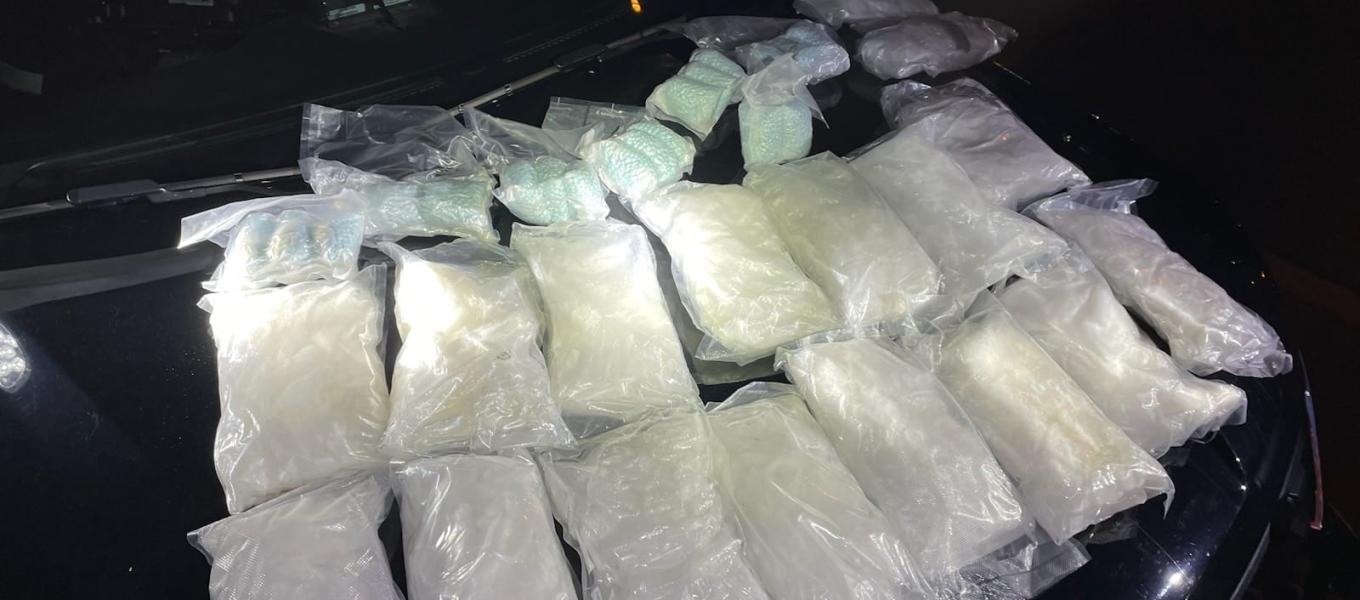Latest News
- Nearly half a million Canadians left the emergency room last year before seeing a doctor; An crisis in the system
- “New law in Ontario; Should drunk drivers pay child support?
- Dogs also found a shuttle service
- The third fatal pedestrian accident in Hamilton
- The Canadian Mint Unveils 2025 Opulence Series Ultra-Luxury Coins
Latest Ads
-
Jasmine Jewel
Call
-
Omidan group
Call
-
Amir Madanpour
Call
-
Dimo studio
Call
-
Yorkacademy
Call
-
Maryambagheri
Call
-
Shishlix Restaurant
Call

Alberta's largest drug bust: 157 kilograms of cocaine seized
Alberta Law Enforcement Response Teams (ALERT) have dismantled a drug trafficking ring linked to Mexican cartels and made the largest cocaine seizure in their history.
The two-year operation, dubbed Project Cerberus, began in May 2023 and was conducted in partnership with the RCMP, Calgary Police Service and the U.S. Drug Enforcement Administration (DEA), and concluded this month.
According to ALERT, the network received cocaine from Mexican cartels, transported it through the United States and then distributed it across Canada from British Columbia to Ontario.
Arrests and Charges:
Five men from Alberta (two from Calgary and three from Edmonton) have been arrested and face a total of 31 charges related to organized crime, narcotics, money laundering and conspiracy.
A sixth man from Edmonton was arrested in October 2024 after 96 kilograms of cocaine were discovered at a home in Houston. He was sentenced to more than 11 years in federal prison.
Amount of seizures:
157 kilograms of 96-98% pure cocaine, with a street value of more than $15 million
15 guns
Nearly $1 million in cash
7 vehicles equipped with hidden compartments for drug trafficking
The first cocaine haul was found by Manitoba RCMP in March 2024 in a hidden compartment of a car near Reacher. The compartments, which operated with a complex hydraulic system, were among the most surprising findings of the investigation, says Major Matt Pumphrey.
Experts warn that these types of organized crime networks can adapt quickly and continue to operate. Temitope Oriola, a criminology professor at the University of Alberta, calls it a huge achievement, but warns that it doesn’t mean the end of criminal gangs.
Experts also emphasize that increased inspection equipment, the constant use of sniffer dogs and X-ray scanning technology at all borders are essential to prevent drug trafficking and save lives.
News source
Suggested Content
Latest Blog
Login first to rate.
Express your opinion
Login first to submit a comment.
No comments yet.


































